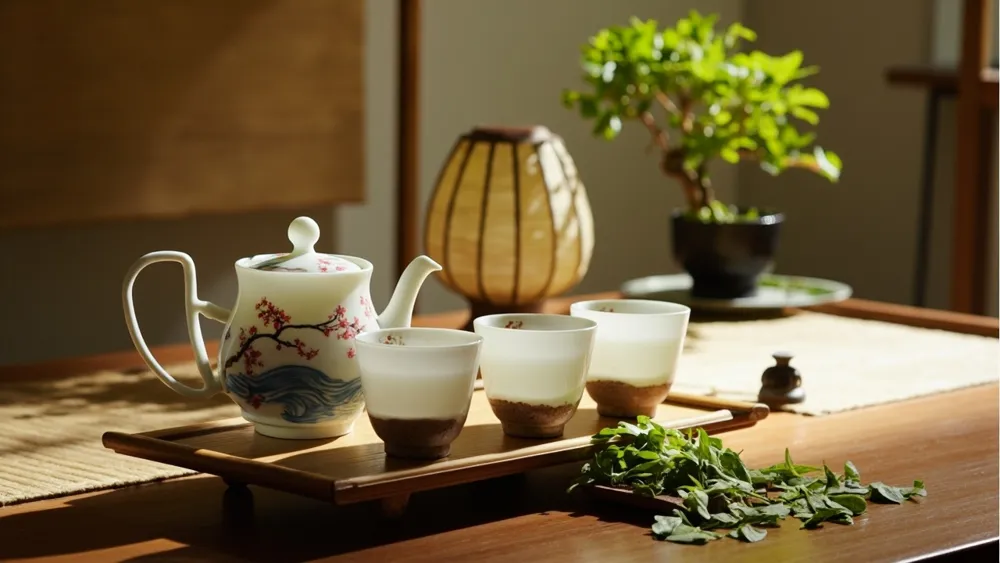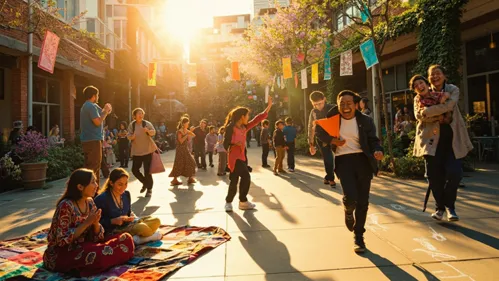campus
Chinese Advanced Students Immerse in Tea Culture Experience

The Chinese (Advanced) Course Group recently hosted an engaging practical event aimed at international master's students, focusing on the enriching experience of tea culture under the theme 'Song Yun Tea Fragrance.' The event serves to deepen the understanding and appreciation of Chinese culture through a comprehensive exploration of its tea traditions.
Leading the event was Dong Yanru from the Department of Tea Science, who began with an exploration of the historical significance of tea ordering during the Song Dynasty. This foundational aspect of Chinese culture was emphasized, with Mr. Dong illustrating the diverse array of tea utensils used during this period through the comprehensive display in 'Tea Ware Tuzan.' These utensils not only exhibit practical utility but are steeped in cultural meaning.
Mr. Dong proceeded to elucidate the art of dividing tea, showcasing various techniques through visual aids. This segment highlighted modern preparations involving mixing paste and spilling Yingchun, which serve to illustrate the finesse and sophistication of tea art. Such practices also signify the intricate layers of traditional Chinese culture that continue to resonate.
During the event, Mr. Dong meticulously detailed the tea ordering process in the Song Dynasty, covering essential steps such as burning tea, tencha, luo tea, waiting soup, pot-making, and the ordering itself. These steps not only reflect the meticulousness inherent in Song Dynasty tea art but also underscore the societal importance and reverence granted to tea culture at that time.
Towards the conclusion, Mr. Dong referenced Zhao Ji, also known as Song Huizong, and his work 'The Grand View of Tea Theory.' He provided a vivid account of tea ordering techniques and their processes, allowing students to visualize an idyllic tea ceremony from the Song Dynasty and appreciate the exquisite artistry encapsulated in each cup.
This event proved to be more than a mere presentation; it offered students a hands-on experience in tea ordering, enabling them to appreciate the allure of traditional Chinese culture. The insights and experiences gained are anticipated to be prominently featured in their forthcoming course reports, with expectations for remarkable contributions.
The core philosophy of the 'Chinese (Advanced)' course emphasizes fostering academic thinking through cultural experiences. This innovative educational approach focuses on cultural institutions while encouraging academic outcomes, effectively enhancing the practical aspects of intercultural academic dialogue and yielding commendable teaching results.
163 Million Travel Entries and Departures Rise 153 Percent Year-on-Year
In Q1, immigration authorities enhanced openness with visa policies, issuing 5.153M passports and 248.54M travel vouchers.
China Ministry of Education Announces 2025 Study Abroad Recruitment
Applicants can register for the 2025 recruitment from May 2025 to May 23. One job per person; info cannot be modified.
High-Level International Students Reunite at Zhejiang University
From May 18-20, 2025, over 100 international students from 19 universities gathered at Zhejiang University for academic exchanges.


